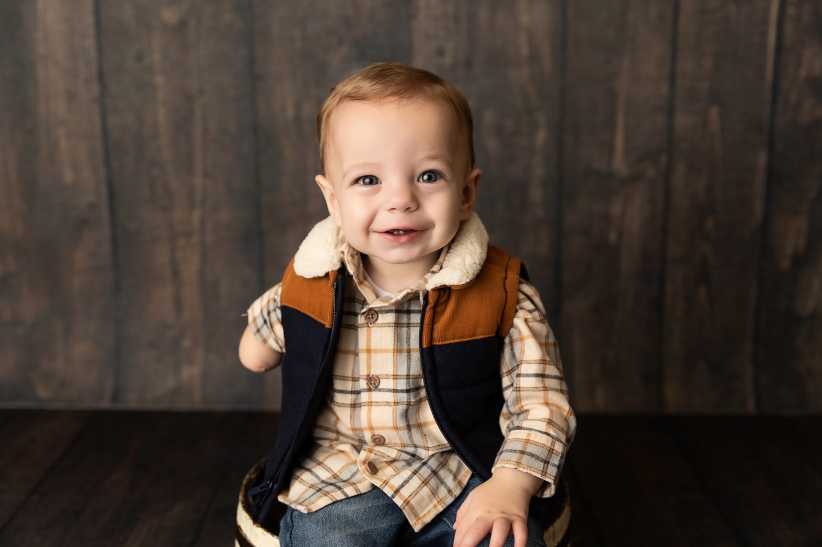Is our current model of autism care outdated, and does it need revamping?
Turning a traditional and myopic viewpoint on its head, a radically different book challenges the cookie-cutter approach to treating this challenging disorder and reveals the politics of autism.
Since publishing her first research findings more than 30 years ago, distinguished autism scientist and developmental psychologist Bryna Siegel, PhD, has been an active researcher, devoting her career to finding answers and exploring current policies — some of which are problematic and don’t address certain issues that families face long-term.
In her new book, “The Politics of Autism” (Oxford University Pess, Sept. 3, 2018), she describes some of the challenges faced by our autism community.
Because she is mainly concerned with “the changing nature of what we call ‘autism,’ ” she believes that it’s time for us as a community who raises, diagnoses, and treats children with autism, to re-examine whether there are things we can do differently to achieve better outcomes.
“Our current model of professional and medical autism ‘care,’ is what I have come to call ‘diagnose and adios.’ Parents get the diagnosis of autism and are essentially on their own. They must turn to the experiences of other parents with children who may be quite different from their own, and to the web — where the truth can be quite vulnerable.”
Autism and autism spectrum disorders aren’t one-size-fits-all, and Dr. Siegel spoke with Special Child about it and the fundamental changes in mindset and policy she believes this country needs.
Tammy Scileppi: What would you like to tell our readers?
Dr. Siegel: Children and their parents need to know that what we are doing today is not enough and partly misguided because 90 percent of adults with autism are unemployed or under-employed. We need better ways to prepare children with autism for their futures. This means we need to do a better job preparing and guiding their parents and educating children.
In my work, I have come to describe autism as a collection of “autistic learning disabilities” and “autistic learning styles.” This means each child’s strengths and weaknesses and developmental trajectory needs to be understood by parents to know if their child is reaching his potential — and/or what else they might do to help more.
TS: What will parents learn from your book?
DS: Parents should read this book to understand what’s in store — because, right now, there are few professionals out there to guide them through this journey. Parents of young children will learn that there will very likely be treatment needs beyond their child’s years of intensive behavioral therapy. Parents of school-aged children will learn there will be a fork in the road where they can now begin to plan whether their child is one who needs them to save for college — or a special needs trust. Parents of teens need to realistically evaluate whether some sort of “supported” college experience — or some sort of vocational training that capitalizes on their teen’s strengths and interests will most likely lead to a happy, employable, independent adult. Parents of adults (with 85 percent still residing with parents) need to grapple with the reality that their child will outlive them. They need to prepare their dependent adult with skills, and lobby for development of good quality adult (assisted) living settings for autistic adults.
TS: Describe the politics you write about and what this landscape looks like.
DS: The politics have to do with the “silos” of autism lobbying groups: There are the “autism awareness” folks — we are aware enough now. Time to focus on what to do about this. There are those who want one-on-one behavioral teaching all the time, and often pretend that this is the only effective method for teaching a child with autism — when it is not. There are the educational inclusion folks — who promulgate the idea that the best special education for autism is to not be in special education. The poor outcomes in adults with autism point to that approach as inadequate.
Then there are the snake oils salesmen, like celebrity moms who assert having learned at the “University of Google” that vaccines cause autism — they do not! Finally, there are basic researchers looking at genes and gene expression in brain development — great and important work that needs to be done — but not really autism research, as none of it to date has helped a person or family living with autism, and no such help is on the near horizon.
TS: What are some real and immediate needs of those living with autism?
DS: We need revisions to education law (Individuals with Disabilities Education Act) that are responsive to present data that show low employability and low independence following an academic and non-vocational track in high school. For lower-functioning individuals we need to follow data that show that failure to achieve basic academic milestones like speaking in sentences or reading by early elementary school supports middle and high schools that emphasize self-help, leisure and independence skills, not academics.
Parents need doctors willing, and actually trained to give “bad news” about what a child is unlikely to be able to learn — as well as give “good news” about what can be learned — rather than claiming “we never know,” when we do. This is like the paternalistic attitudes of cancer specialists in the mid-20th century who felt patients shouldn’t be told if their cancer happened to be fatal.
TS: How does that specifically relate to New York City families?
DS: New York spends a tremendous amount on early applied behavior analysis therapy and one-on-one teaching. It has probably resulted in some “diagnosing for dollars” as city rates of autism have skyrocketed. There needs to be accountability and transition to less intensive (and likely to be equally effective) programs when benefits from costly programs plateau.
TS: So, what are today’s challenges?
DS: They come from a cookie-cutter approach to treating autism: First, acting like intensive, costly early interventions are the best and only way to help every child, is essentially robbing Peter to pay Paul — too many financial resources into programs in the first five years of life — leaving too few directed into the rest of the child’s lifetime.
When these early programs do serve to remove a child’s autism label, excellent, but 85 percent of children will need more than that.
Secondly, special education over-emphasizes mainstreaming, and under-emphasizes teaching fundamental social and self-help skills. Educational mainstreaming is essential for some (again, just the least significantly effected), but for many, essentially deprives them of the foundational special education they need to do their best.
TS: What kind of support would help families do better?
DS: Parents need to be trained in how to raise their child with autism: I don’t mean learning applied behavior analysis methods — but learning to think of autism the way we think when a child is diagnosed as deaf or blind: Parents need a crash course in finding special techniques to reach their child and in using “teachable” moments to leverage their child’s learning — like a language immersion class in a foreign country versus just taking classes.
Parents need a professional “navigator” to learn what to expect, what comes next, and whether what is being done is working, and what else makes sense to try if a child’s progress stagnates.
TS: You mention “misguided priorities.” How have they changed over time?
DS: Medical insurance companies need to recognize autism as a chronic disorder — like cerebral palsy, multiple sclerosis, diabetes — and authorize ongoing “navigational” supportive help for people with autism and their families. It’s unconscionable that recommendations given the day a 2-year-old is diagnosed with autism are the only ones parents will need for the rest of his or her life. That’s how things are now.
For most individuals with autistic social or cognitive deficits, secondary education needs to be about developing workability, vocational aptitude testing, job-sampling, and apprenticeships — in short, vocational education that is all but dead for most in American schools. Let’s look to Asia and the European Union for this.
TS: What does the future hold?
DS: I would like to hope it holds a better future for the coming wave of adults who will still have to live with autism. We need to identify work niches, have better vocational testing and placement, training, apprenticeships, and job-sampling, to get them there. We need models for adult communities where adults with autism can be independent but also protected socially and financially from situations that are likely to remain hard for them to navigate successfully and independently.
Tammy Scileppi is a Queens-based freelance writer and journalist, parent, and regular contributor to New York Parenting. Interviewing hundreds of New York City’s movers and shakers has been an amazing adventure for her. Scileppi’s work has appeared in a variety of media outlets. She has also written book cover copy for Simon and Schuster.





















